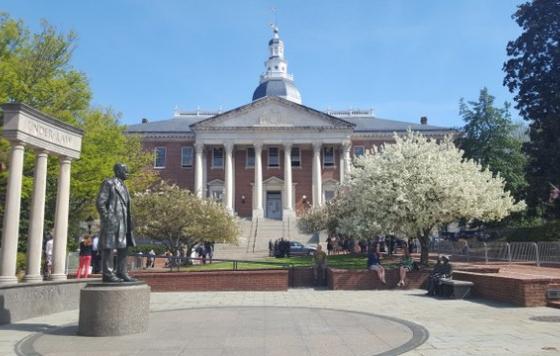
Last week, I started at Clean Water Action Massachusetts as the new Clean Energy Organizer, and it has been jam-packed with events and meetings. I came to Clean Water Action from the public sector after spending two and a half years at the Massachusetts Legislature. At the Legislature, I worked for the House of Representatives as Energy Committee Staff which mainly meant analyzing legislation and meeting with advocates and State Representatives. My academic background is in environmental economics and policy, and working for lawmakers taught me how politics works from the inside. As a political staffer, I worked with Clean Water Action’s energy organizers to further environmental goals and was thoroughly impressed by their professionalism and effectiveness. When I saw that Clean Water Action was hiring in the Boston office, I thought it would be an amazing opportunity to gain experience working with frontline communities and learning how we can organize to influence our political system. It has been refreshing and eye-opening to see how much activity happens behind the scenes and outside the State House to say the least.
On Monday, I attended a Zero Waste Boston Coalition meeting with recycling experts and activists who were all committed to reducing Boston’s footprint. It was stunning to me that Boston, a city known for its support of environmental measures, is so far behind compared to many of the national leaders in waste reduction and recycling.
The next day, I had the pleasure of joining our Regional Director Cindy Luppi and our guests, families who live in the heart of Marcellus Shale from Pennsylvania. As we packed into the warm church on a stormy New England night, we were told harrowing stories of gas companies infiltrating towns and poisoning the water and air. The extent of the health consequences, the brazenness of the energy companies, and the level of complacency from the powers that be were truly appalling. We heard stories of young children suffering devastating impacts, from digestive tract damage to neuropathy and asthma. We heard from mothers and fathers who were painstakingly providing for their children while suffering many of the same deleterious effects themselves. Everyone in the room was touched immensely by their experience and pain, and we thank them so much for taking the time to visit us and share their story. Our goal is to make sure that decision-makers in our region keep these impacts in mind when the natural gas industry comes seeking expansions and subsidies.
Wednesday night, I attended a Town Hall next to my hometown in central Massachusetts, an area not known as a typical hotbed of environmental activism. Despite the reputation, we filled the room with area residents who were excited and ready to hear from our state leaders! Massachusetts Senate President Harriette Chandler led the night in framing the issues for central Massachusetts residents, including recent public transportation and clean energy initiatives. She invited energy and environmental policy leaders Senators Barrett and Pacheco to join us and we had great discussions regarding carbon pricing, affordable community solar projects and offshore wind energy generation. In addition, Clean Water Action’s Worcester area board member Margot Barnet gave a short presentation of our toxic flame retardant policy legislation, S.1175 and H.1245, “An Act to Protect Children, Families, and Firefighters from Toxic Flame Retardants.” This bill would ban harmful and unnecessary chemicals in our children’s products and furniture and give us the tools to ban harmful chemicals in the future. The senators wholeheartedly stated that they would pass the legislation again, just like they did last session. We had a great night in Worcester, learned a lot about energy policy, and brought out many local activists who are engaged and want to continue the fight.
My first week at Clean Water has been chaotic, busy, and honestly a ton of fun. The staff in the Boston office is extremely welcoming and I can’t wait to see what the future holds.



